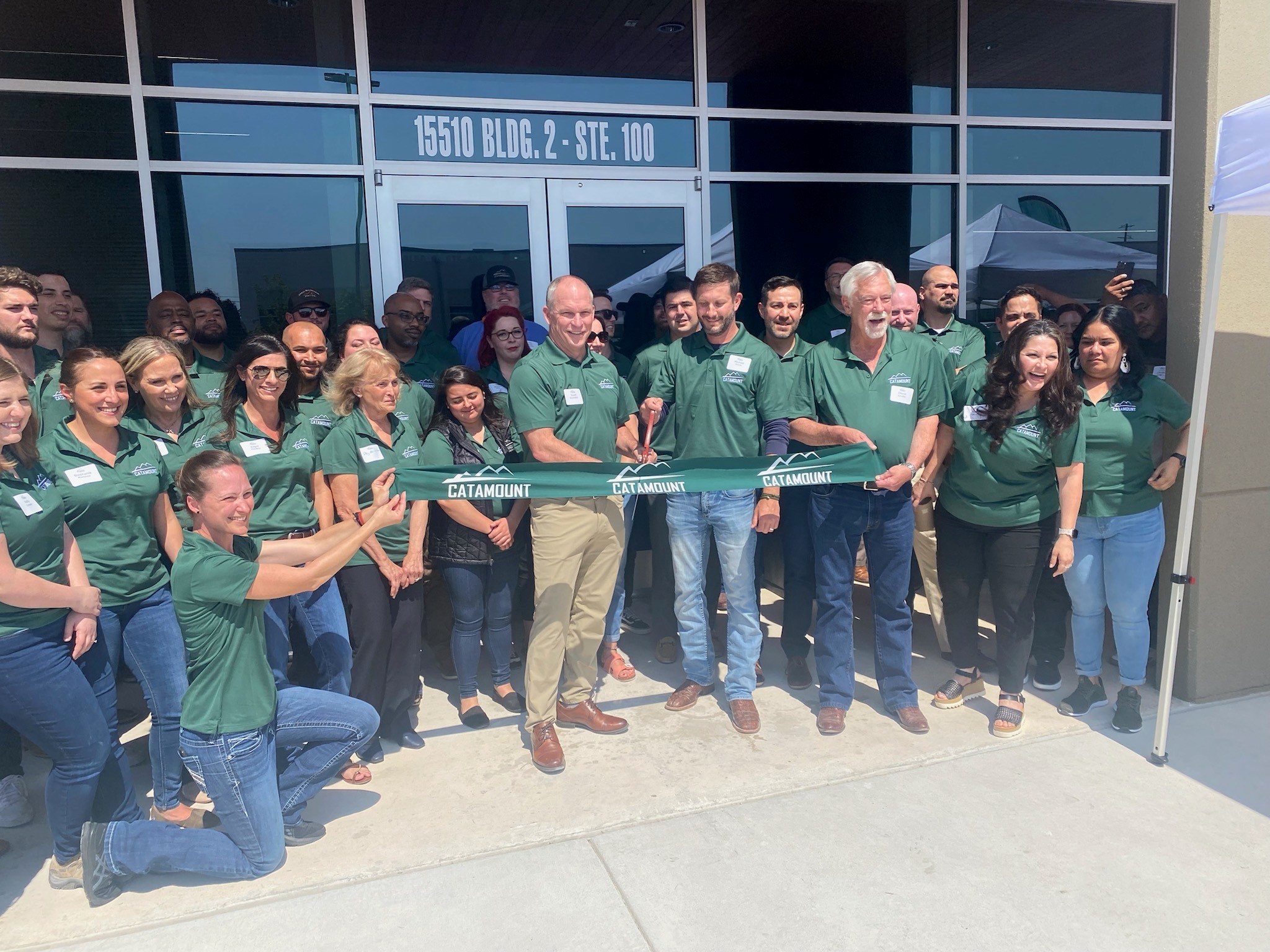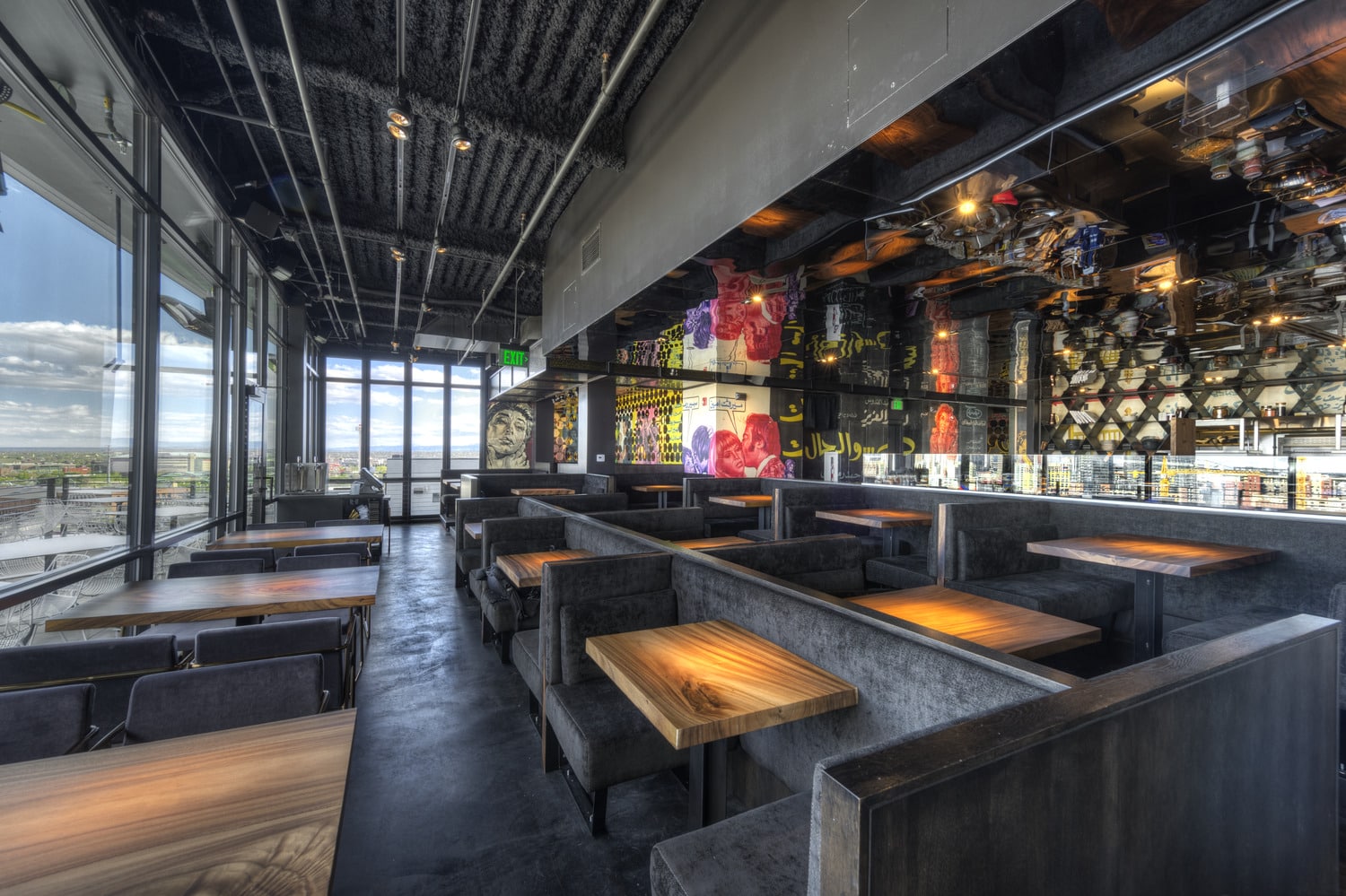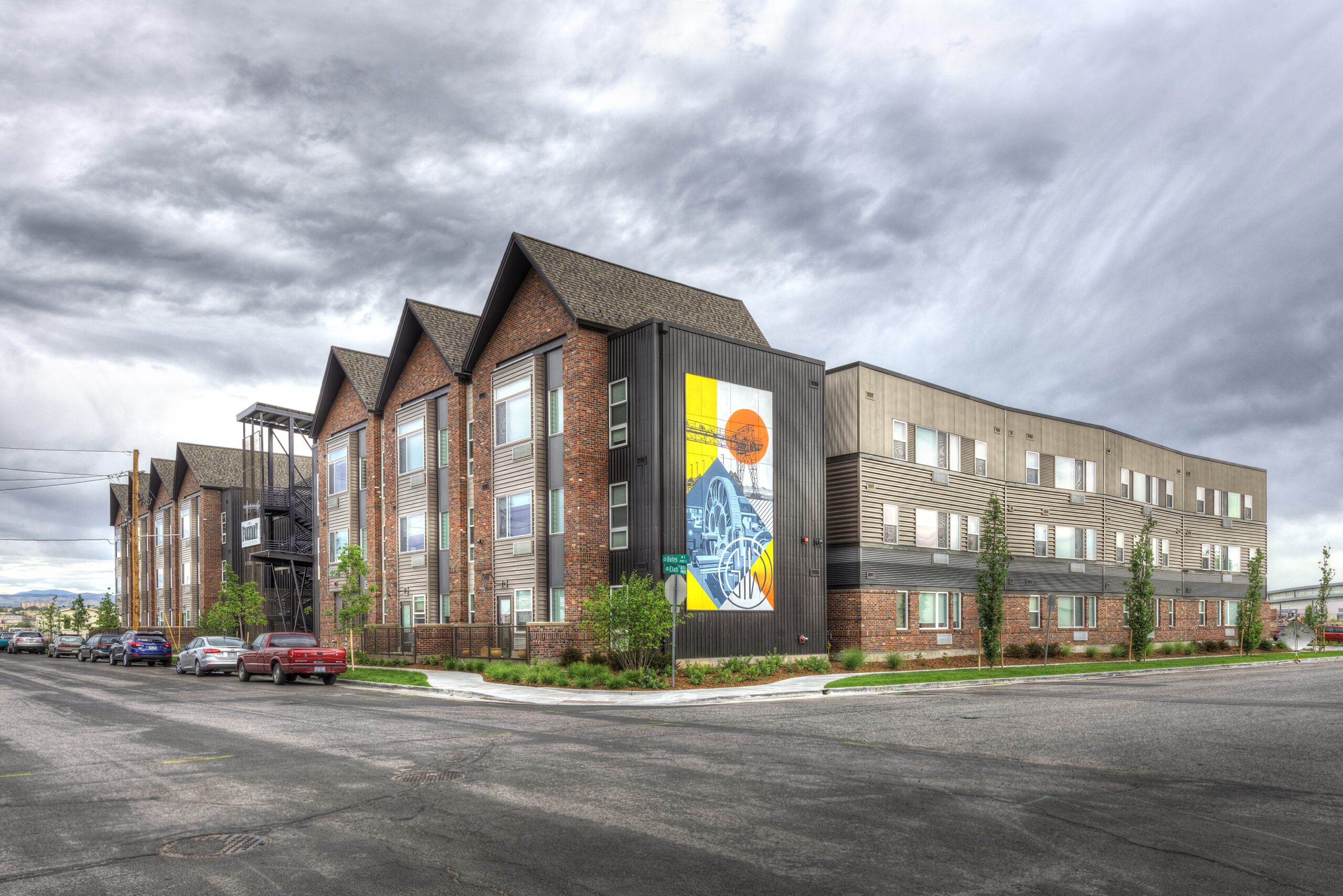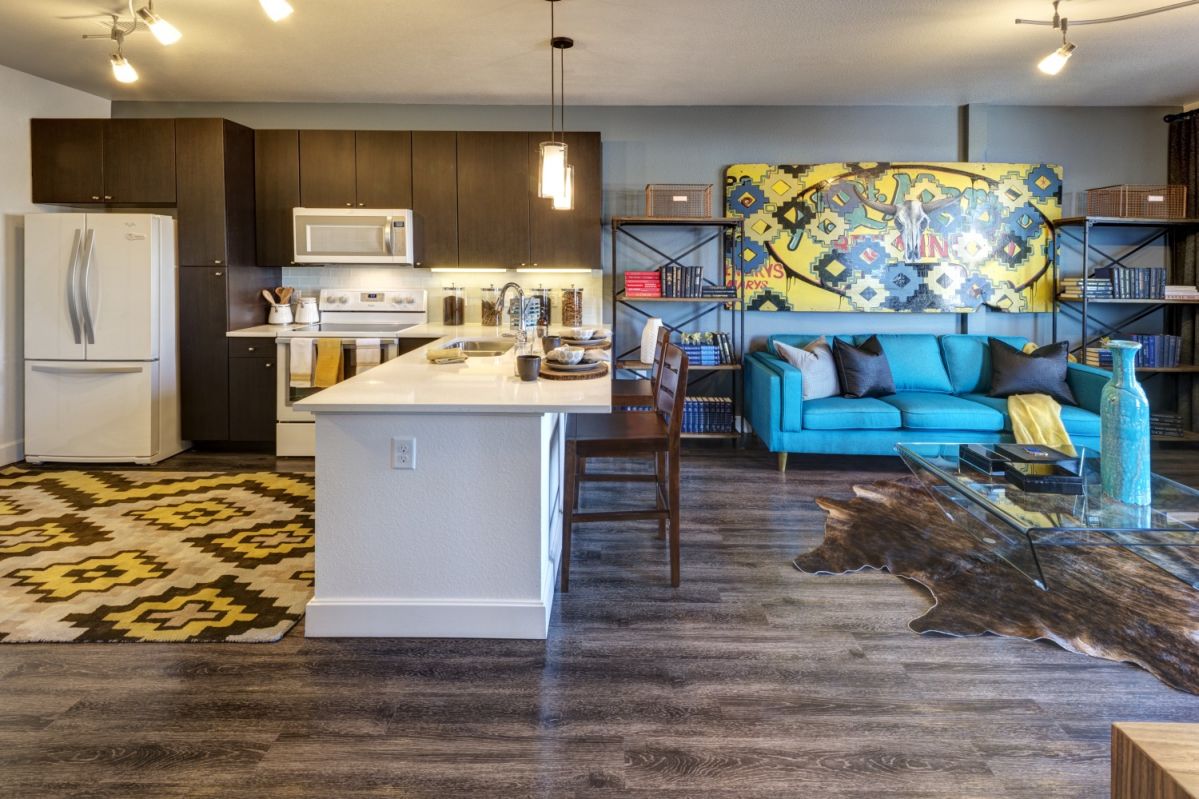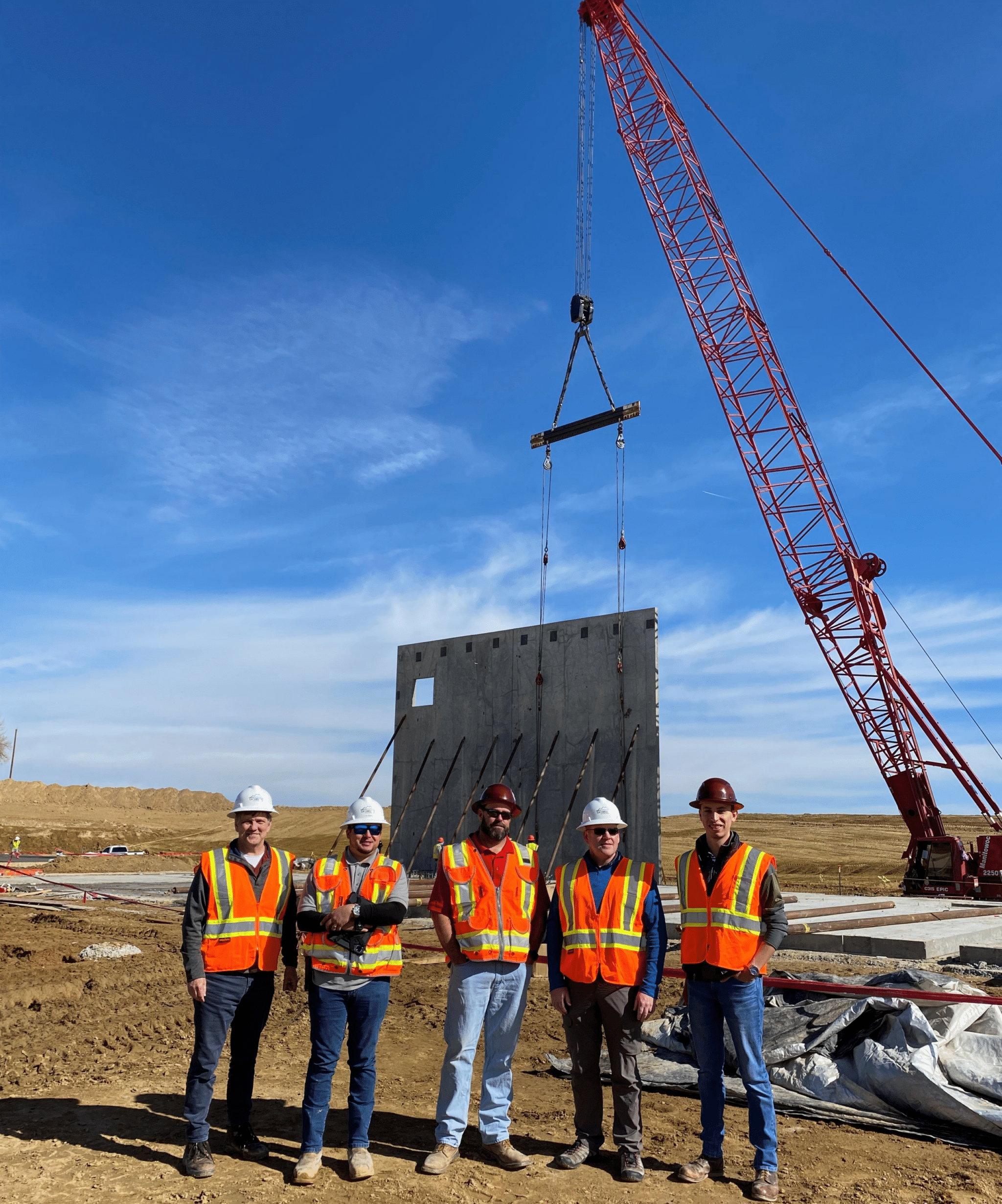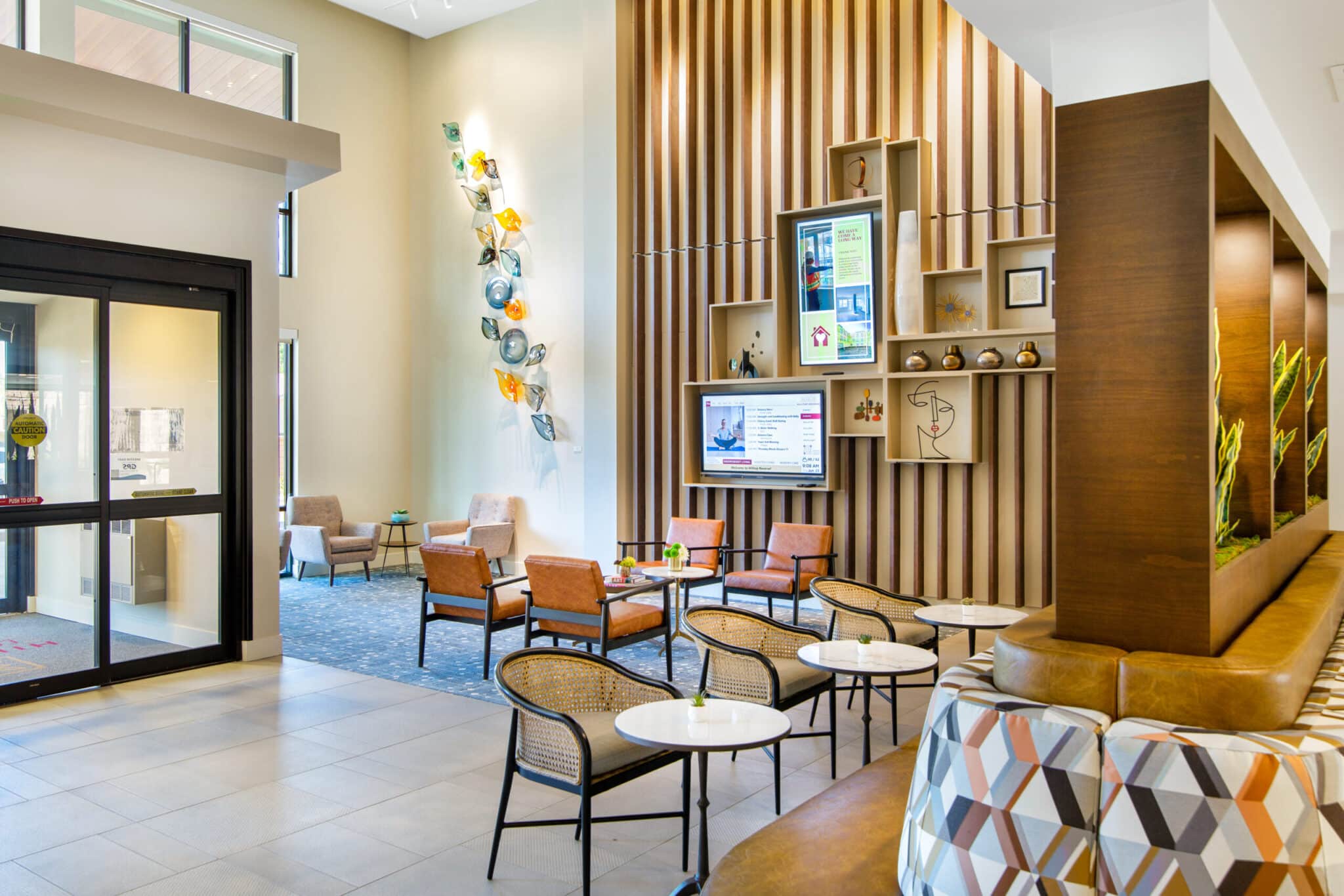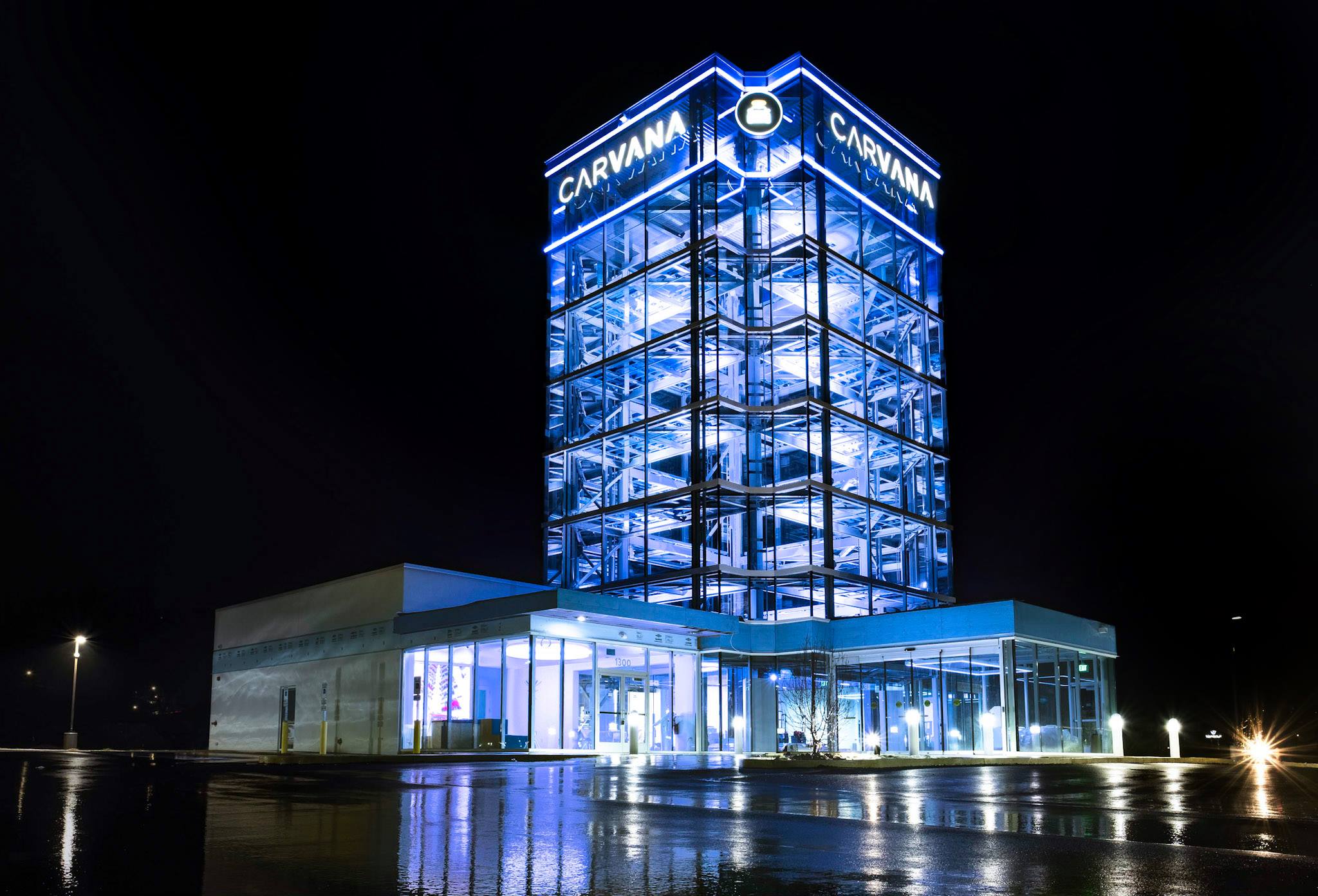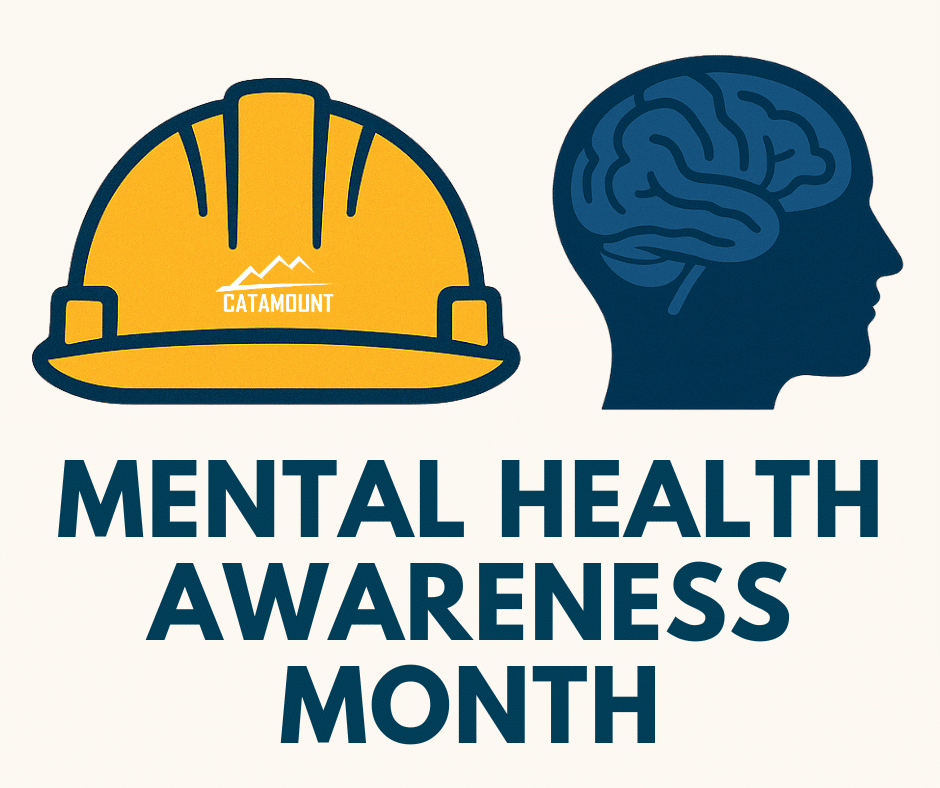
Safety and construction go hand in hand. Every day, construction workers are trained to recognize and mitigate visible hazards—unprotected falls, faulty equipment, and job site debris. But what about the dangers we can’t see? At Catamount Constructors we understand stress, anxiety, and fatigue can be just as hazardous, quietly making an impact on decision-making, focus, and overall well-being.
This Mental Health Month, we’re spotlighting one of the most important—and most overlooked—aspects of job site safety: mental well-being. This effort is especially important in construction, where “toughing it out” is deeply ingrained in industry culture.
Lead with Understanding
Construction is demanding; long hours, tight deadlines, and high stakes leave little room for reflection. Yet underneath the hard hats and high-vis vests are people—people who feel pressure, navigate difficult challenges, and sometimes carry more than they let on.
When it comes to creating a culture of support, leadership sets the tone. Tony Abernathy, a trusted Project Executive with Catamount is known for his thoughtful leadership. “Our relationship with our manager affects our mental health more than a therapist and is second only to our partner,” he shared, referencing a recent conversation that deeply resonated with him. “That’s a powerful reminder of how much influence we have as leaders. It’s not just about overseeing work, it’s about showing up with empathy, listening, and creating space where people feel seen and supported.”
According to the National Council for Mental Wellbeing:
- 1 in 5 U.S. adults experience mental illness each year.
- Only 47.2% of U.S. adults with mental illness received treatment in 2021.
Mental health in construction is influenced by a range of factors, many of which are deeply embedded in the industry’s culture and conditions, including (Trimble):
- “Tough-it-out” mentality discourages vulnerability
- High-stress, high-stakes work
- Job insecurity tied to project-based work
- Extended time away from support systems
- Limited awareness of mental health resources
Addressing these issues starts with acknowledging them. When we create space for conversations around mental health, we reinforce a culture of trust, safety, and care.
Break the Silence
“Mental Health is one of the top issues for all people, but very prevalent in Construction. Our teams need to make decisions quickly and accurately. If we are in a state of mind that takes away from decision-making skills and drive, then everything at work and home becomes harder,” said Dillon Lawrence, Project Manager and Chair of the Catamount Wellness Committee. “Giving our employee-owners information and tools to understand their mental health is a must for a best-in-class company like ours.”
Dillon’s passion for health stems from his background in Health and Exercise Science. His leadership of Catamount’s Wellness Committee is grounded in the belief that mental and physical health go hand in hand and supporting both is a critical foundation of Catamount’s thriving ESOP culture.
“I’ve always believed a healthy body and mind lead to brilliant decisions,” said Dillon. “With a degree in Health and Exercise Science and a focus in Sports Medicine from Colorado State, I’ve always been in tune with wellness. That personal passion is what drove me to step up as a leader, I wanted to share that energy with fellow employee-owners in a way that benefits all of us, together.”
Encourage Seeking Help as Strength, Not Weakness
We believe asking for help is a sign of strength. Whether it’s reaching out to a fellow employee-owner, a supervisor, or using a hotline—taking that first step matters.
“It’s ok to not be ok, we are human. Construction is a tough industry and job market, finding balance is hard,” said Yvette Roche, Assistant Superintendent with Catamount. “Some days, your 100% might look like 25, which might be your full effort for that day. Show yourself grace. Just like projects, weather, and so many other things, they ebb and flow, the hard isn’t permanent and you are not alone.”
Yvette speaks openly about her own journey with mental health advocacy. Her hands-on experience with our Employee Assistance Programs (EAPs) and certifications in suicide intervention and brain health coaching help her support fellow employee-owners both professionally and personally.
“We don’t need all the answers, but recognizing when someone’s struggling, having the courage to ask, and helping them connect to support can save lives and strengthen our workforce.”
Resources
Part of normalizing mental health is making support easily accessible.
- SAMHSA’s National Helpline (1-800-662-HELP (4357): 24/7 confidential treatment referral & information service
- 988 Suicide & Crisis Lifeline: 24/7 confidential support
- FindTreatment.gov: Confidential & anonymous resources for substance & mental health treatment
- National Institute of Mental Health: Educational tools & services
Catamount continues to grow in how we support our employee-owners. In recent years, we’ve supported mental health in construction by:
- Reinstating our Wellness Committee
- Expanding EAP programs
- Introducing Women for Catamount, an Employee-owner Resource Group
- Hosting mental health workshops & interactive events
- Prioritizing mental health discussions & training
Building a Safer, Supportive Culture
“Our job is to protect the whole person, not just their physical wellbeing. That means creating space for honest conversations, recognizing the signs when someone’s struggling, and making it clear mental health is our priority,” said Dan Medaglia, Director of Safety with Catamount.
Dan is a relentless advocate for safety. His deep understanding of the pressures faced on job sites, particularly for those working away from home for long stretches, fuels his passion for ensuring no one is left alone to navigate challenges. He’s witnessed firsthand the toll isolation and job site stress can take, and he’s committed to making sure every employee-owner has the support they need to stay safe, both mentally and physically. “Leadership in safety means stepping beyond the checklist,” said Dan. “It means checking in with your team, listening without judgment, and making mental health support part of how we show up every day.”
Mental health in construction is just as critical as harnesses and hard hats. Creating a safer culture means being brave enough to talk about the hard things, checking in even when it’s uncomfortable, and reminding each other that no one is alone. Let’s keep building a culture where mental health matters every day, not just during Mental Health Month.
Connect with Catamount Constructors on social media Linkedin, Facebook, and Instagram.
